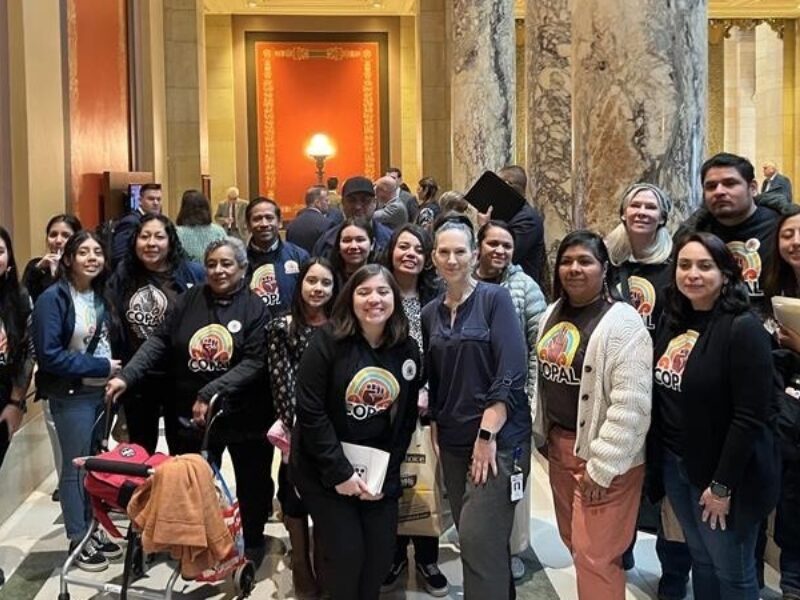Reflections on Racial Equity and Health as we enter National Minority Health Month
Ed. Note - The Foundation occasionally offers this platform for nonprofit leaders to share their thoughts on current events. This is a guest blog post written by a collective of staff members at WoMN ACT.
By WoMN ACT
April marks the beginning of National Minority Health Month, a tradition now twenty years old. In a country still reeling from tragedy, disease and economic insecurity for so many, the pandemic has been another reminder of how our healthcare system works for some and fails for others.
Black, Hispanic and Native Americans are dying from COVID-19 at nearly three times the rate of white Americans. Additionally, vaccination rates among Black populations significantly trails other populations.
These are just a couple of examples of how health inequities exist. Still, there is reason for hope. As of late January, Hennepin Healthcare hired its first Chief Health Equity Officer, Nneka Sederstrom, the former director of the clinical ethics department at Children's Minnesota.
Addressing the Minnesota Paradox
“The Minnesota Paradox,” or the idea that Minnesota ranks highest in the country for schools, culture, housing and quality of life while simultaneously being one of the worst places for Black Americans to live, resonates throughout our healthcare system. Testing and vaccination resources in Black and Brown communities in the metro has been dismal, and historically sensible anxiety surrounding vaccinations and COVID-19 treatment in general have been high. Sederstrom, in the two short months since her appointment, has already launched a pilot COVID-19 vaccination clinic at a north Minneapolis church and hopes to do more to reach communities that have been hit hard by the pandemic.
Furthermore, several bills introduced this session in the Minnesota Legislature have sought to combat health disparities:
- SF 1054, introduced in mid-February, appropriates 6 million dollars to the commissioner of health for contracts with media vendors, community-based organizations and tribal governments. It is designed to provide culturally relevant, linguistically appropriate messages, factual information and community engagement services regarding COVID-19 to diverse communities and populations in the state, including American Indians, queer folks, recent immigrants and communities of color.
- HF 2113, which has 35 sponsors, was introduced on March 10 and seeks to close gaps in vaccinations among white and BIPOC Minnesotans. This legislation would provide the structure necessary to assure equal access to vaccines for African Americans, American Indians and other populations of color, and those at the highest risk for COVID-19.
- Another promising bill that aims to help Black mothers in the state is championed by Representative Richardson. HF 660, or the Dignity in Pregnancy and Childbirth Act, legislation that addresses appalling disparities in maternal and child health outcomes and implements anti-racism training bias. The bill has now passed two committee hearings.
“In a country still reeling from tragedy, disease, and economic insecurity for so many, the pandemic has been another reminder of how our healthcare system works for some and fails for others.”
WoMN ACT

Advancing Equity With WoMN ACT
While awareness days and months are important to call attention to inequities and causes that need more visibility and support, we believe some inequities are emergent and need attention every day. Health inequities, structural and systematic in nature, are rooted in the unequal distribution of power and resources, influenced by race, gender, class, sexual orientation, gender expression and more.
At WoMN ACT, our mission is to advance gender equity and social justice, through advocacy and collaboration. Health equity is one of our primary advocacy initiatives. We believe our collective power can make transformative change for issues like these.









